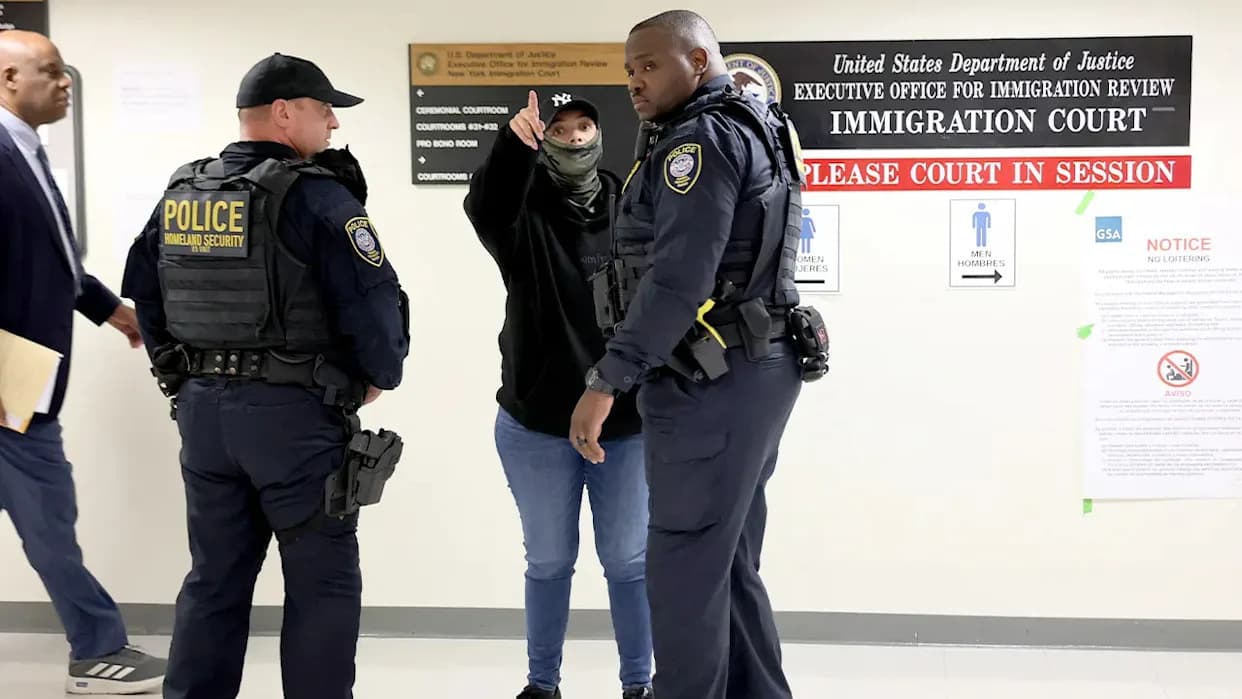The U.S. Court of Appeals for the Seventh Circuit temporarily blocked the ordered release of hundreds of immigrants arrested during Chicago-area DHS operations, reversing a district court ruling that would have freed detainees on $1,500 bonds. The Department of Justice submitted a list of more than 600 detainees for review, with criminal-history details provided for just 16 individuals. Many detainees were transferred to facilities in other states, and the appeals court gave no immediate reason for pausing releases; oral arguments are scheduled for December 2.
Appeals Court Pauses Release of Hundreds Detained in Chicago-Area Immigration Raids

A federal appeals court has temporarily blocked the release of hundreds of immigrants arrested during Department of Homeland Security operations in the Chicago area earlier this year.
Judge ordered releases; appeals court steps in
Last Wednesday, U.S. District Judge Jeffrey Cummings ordered the government to release hundreds of detainees on $1,500 bonds after finding the arrests likely violated a local consent decree that restricts warrantless arrests of immigrants. The Department of Justice subsequently submitted a list of more than 600 detainees to be reviewed for possible release.
What the government submitted
Federal officials marked only a small portion of those on the list as "high risk." The filing included criminal-history information for just 16 individuals; those records listed convictions or arrests for offenses such as aggravated assault, driving under the influence, indecent exposure, battery, enticement of a minor and kidnapping.
Records indicate many migrants arrested in the Chicago area were later transferred to detention facilities in other states, including Texas and Kentucky. Several detainees have filed their own individual legal challenges, and some reportedly had already been released prior to the appeals court action.
Arguments and next steps
On Thursday, the U.S. Court of Appeals for the Seventh Circuit granted the administration's request to pause the district court's release order, doing so one day before releases were scheduled to proceed. In its motion, the government argued that Judge Cummings misapplied the law, exceeded the scope of the consent decree and the court's equitable powers, and interfered with immigration officers' ability to carry out enforcement duties.
The appeals court's temporary order did not include an explanation. Oral arguments are scheduled for December 2, when the court will consider the merits of the government's appeal and whether the lower-court orders should remain in effect.
Stakeholders
Lead attorneys representing the class-action plaintiffs include the National Immigrant Justice Center and the American Civil Liberties Union. Defense attorneys and advocates have said uncertainty remains for detainees who were transferred outside the district, since it is unclear how the district court's orders will apply to those individuals.
As the case proceeds, it will test the interaction between local consent decrees limiting warrantless arrests and federal immigration enforcement authority — and could shape how similar enforcement actions are handled in the future.
Help us improve.




























